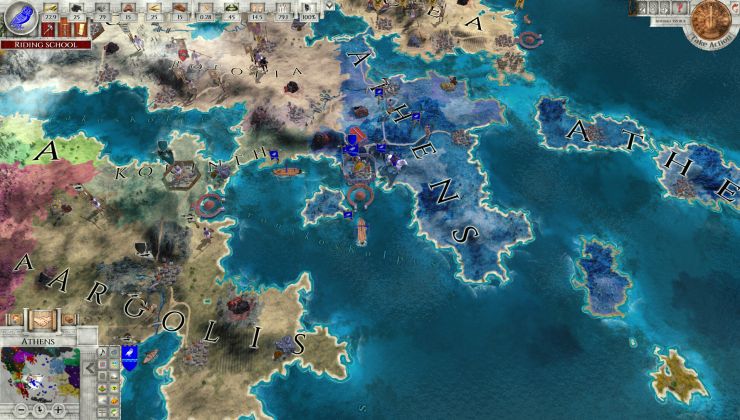I did it, I jumped ship from Ubuntu to Antergos and I honestly can’t see myself going back. Here’s some thoughts on that.
Why I switched
There’s many reasons for my switch, but the main one has been stability. Ubuntu has been getting more problem-filled with every new release for me so I had enough. Not only that, but due to it being dependent on GNOME packages, stuff was being stripped away too and it’s just a mess now. Some applications have normal title-bars, some have GNOME’s new styling with everything sodding hidden and it’s just all mashed together.
Audacity would constantly screw up and just skip over audio while trying to record or playback, or just flat out not work.
Multiple games wouldn’t give me audio until I killed PulseAudio and reloaded it or did other trickery. It was becoming a nuisance, especially when I want to livestream and “oh sorry guys, let me fix my audio, fuc…”.
It seems Ubuntu has a lot of problems with their setup of PulseAudio. I don’t know what they’re doing to it, but they’re murdering the poor thing.
Antergos, I choose you!
If Antergos is anything, it’s like walking in heavy rain without a coat and — suddenly the clouds part and the almighty sun is shining down on you to make everything better. Something like this essentially (thanks Samsai):

I’mdefinitely probably not overselling it — okay maybe a little.
I adore the Arch User Repository (AUR) and have found it so incredibly useful for multiple applications I use on a daily basis, especially when those same applications on Ubuntu could be out of date for weeks and months. The brand new Minecraft launcher was in it the day it was release by the official developers, the itch.io app is in it, everything I need is right there and tested by tons of people. It’s essentially a far better PPA-like system. It’s easier to understand too, thanks to a much clearer layout on the actual website.
Just don't outright trust everything on the AUR, make sure you read a few comments before installing a random package. I'm sure you're all smart enough to know to do that anyway.
Getting used to KDE after being on GNOME or GNOME-like desktops for many years has been a challenge by itself, but wow, it’s actually a lot nicer. Things aren’t hidden away where I don’t expect them to be, if I want something it’s usually right where I would expect it in a proper menu.
There was two “gotchas” I had to sort out. I couldn’t figure out why OBS Studio wouldn’t pick up any video, so eventually I tested gaming and games ran at 5 FPS. Turns out that installing the nvidia drivers didn’t come with the 32bit libs as a dependency. So, if you do decide to check out Antergos with Nvidia, make sure “lib32-nvidia-libgl” is installed too. This took me a good day to figure out too, as I didn’t think to test games until the next day and that made me realize it was a driver issue.
The second was that one day I booted up to a black screen with a cursor, as the system booted so fast that LightDM didn't load (Arch Wiki entry). I had to edit "/etc/lightdm/lightdm.conf" to include:
I also learnt about bash aliases thanks to being on Arch, so instead of running something I can never remember like “Yuarty -sYusudaadasdas” to update, I have it setup so I just run “upall” in terminal and it updates everything for me — glorious! It’s easy to do as well, simply edit:
Add at the bottom:
You can substitute “yaourt -Syua” for anything, like “apt-get update && apt-get upgrade” for Debian/Ubuntu and so on.
And then save it.
Lastly, enjoy a shot of my KDE Antergos dual-desktop:

Seriously, you should give Antergos a try. It’s Arch, but a more tame Arch since it has a live-media option and you can pick what desktop you want from the installer. This was a key selling point for me, and the installer was a breeze too.
Why I switched
There’s many reasons for my switch, but the main one has been stability. Ubuntu has been getting more problem-filled with every new release for me so I had enough. Not only that, but due to it being dependent on GNOME packages, stuff was being stripped away too and it’s just a mess now. Some applications have normal title-bars, some have GNOME’s new styling with everything sodding hidden and it’s just all mashed together.
Audacity would constantly screw up and just skip over audio while trying to record or playback, or just flat out not work.
Multiple games wouldn’t give me audio until I killed PulseAudio and reloaded it or did other trickery. It was becoming a nuisance, especially when I want to livestream and “oh sorry guys, let me fix my audio, fuc…”.
It seems Ubuntu has a lot of problems with their setup of PulseAudio. I don’t know what they’re doing to it, but they’re murdering the poor thing.
Antergos, I choose you!
If Antergos is anything, it’s like walking in heavy rain without a coat and — suddenly the clouds part and the almighty sun is shining down on you to make everything better. Something like this essentially (thanks Samsai):

I’m
I adore the Arch User Repository (AUR) and have found it so incredibly useful for multiple applications I use on a daily basis, especially when those same applications on Ubuntu could be out of date for weeks and months. The brand new Minecraft launcher was in it the day it was release by the official developers, the itch.io app is in it, everything I need is right there and tested by tons of people. It’s essentially a far better PPA-like system. It’s easier to understand too, thanks to a much clearer layout on the actual website.
Just don't outright trust everything on the AUR, make sure you read a few comments before installing a random package. I'm sure you're all smart enough to know to do that anyway.
Getting used to KDE after being on GNOME or GNOME-like desktops for many years has been a challenge by itself, but wow, it’s actually a lot nicer. Things aren’t hidden away where I don’t expect them to be, if I want something it’s usually right where I would expect it in a proper menu.
There was two “gotchas” I had to sort out. I couldn’t figure out why OBS Studio wouldn’t pick up any video, so eventually I tested gaming and games ran at 5 FPS. Turns out that installing the nvidia drivers didn’t come with the 32bit libs as a dependency. So, if you do decide to check out Antergos with Nvidia, make sure “lib32-nvidia-libgl” is installed too. This took me a good day to figure out too, as I didn’t think to test games until the next day and that made me realize it was a driver issue.
The second was that one day I booted up to a black screen with a cursor, as the system booted so fast that LightDM didn't load (Arch Wiki entry). I had to edit "/etc/lightdm/lightdm.conf" to include:
[LightDM]
logind-check-graphical=trueI also learnt about bash aliases thanks to being on Arch, so instead of running something I can never remember like “Yuarty -sYusudaadasdas” to update, I have it setup so I just run “upall” in terminal and it updates everything for me — glorious! It’s easy to do as well, simply edit:
~/.bashrcAdd at the bottom:
alias upall='yaourt -Syua'You can substitute “yaourt -Syua” for anything, like “apt-get update && apt-get upgrade” for Debian/Ubuntu and so on.
And then save it.
Lastly, enjoy a shot of my KDE Antergos dual-desktop:

Seriously, you should give Antergos a try. It’s Arch, but a more tame Arch since it has a live-media option and you can pick what desktop you want from the installer. This was a key selling point for me, and the installer was a breeze too.
Some you may have missed, popular articles from the last month:
It was cool to see this headline. I remember many weeks ago when you tweeted some frustration about Ubuntu. I replied (among many I'm guessing) to give a good look into Antergos. I use regular Arch myself, but the buy-in price (time wise) is higher. I went the familiar pattern of Ubuntu > Mint > Arch. I've been on Arch for a good while, maybe two years, and I love it. It makes me like my computer. It definitely feels like MY computer, more than Windows 7 did.
To all of us commenters:
I don't think it's cool to attempt convincing someone why they should switch distros unless they ask for it. We all have reasons for liking the different ones out there.
To all of us commenters:
I don't think it's cool to attempt convincing someone why they should switch distros unless they ask for it. We all have reasons for liking the different ones out there.
1 Likes, Who?
Quoting: 14To all of us commenters:
I don't think it's cool to attempt convincing someone why they should switch distros unless they ask for it. We all have reasons for liking the different ones out there.
I don't really see the problem if people are being respectful. Are we that fragile?
People should be able to talk about their favourite distros without people resorting to name calling and disrespectful behavior, like pushing the recommendation after people have said no.
Last edited by Aryvandaar on 21 January 2017 at 10:47 am UTC
0 Likes
Your frustration is funny to a relatively long-time Manjaro user.
Here are a couple tips for you:
https://wiki.archlinux.org/index.php/Pacman/Rosetta
https://wiki.archlinux.org/index.php/Pacman/Tips_and_tricks
Everything makes sense with pacman/yaourt once you take the time to remember the switches and realize the system behind it.
Both of the latter have different switches from -S. Look up the man page.
As you can see on the Rosetta page, you can do almost everything with one tool while you would need 3 or 4 on *buntu.
Oh, and don't read AUR comments, read the code!
Last edited by minj on 21 January 2017 at 12:30 pm UTC
Here are a couple tips for you:
https://wiki.archlinux.org/index.php/Pacman/Rosetta
https://wiki.archlinux.org/index.php/Pacman/Tips_and_tricks
Everything makes sense with pacman/yaourt once you take the time to remember the switches and realize the system behind it.
-S for sync/search/install from repos
-s for search
-y for refresh (think --yes or --yank)
-u for upgrade
-a for AUR
-Q is for local search (think --query)
-R is for removeBoth of the latter have different switches from -S. Look up the man page.
As you can see on the Rosetta page, you can do almost everything with one tool while you would need 3 or 4 on *buntu.
Oh, and don't read AUR comments, read the code!
Last edited by minj on 21 January 2017 at 12:30 pm UTC
1 Likes, Who?
Damn Liam, this article actually got me interested in trying out Antergos with my Setup!
I personally like the idea of having the latest software all the time, however I heard some people complaining about updates (especially kernel updates) ruining their systems and I don't want to spend a lot of time on maintenance.
On the other side there are people having used arch linux for years without problems.
And how about proprietary software? For example I like to have spotify on my system and I like pycharm since I code a lot in python for university. Would that work well on antergos?
Last edited by Duke Takeshi on 21 January 2017 at 1:08 pm UTC
I personally like the idea of having the latest software all the time, however I heard some people complaining about updates (especially kernel updates) ruining their systems and I don't want to spend a lot of time on maintenance.
On the other side there are people having used arch linux for years without problems.
And how about proprietary software? For example I like to have spotify on my system and I like pycharm since I code a lot in python for university. Would that work well on antergos?
Last edited by Duke Takeshi on 21 January 2017 at 1:08 pm UTC
0 Likes
Quoting: Duke TakeshiI personally like the idea of having the latest software all the time, however I heard some people complaining about updates (especially kernel updates) ruining their systems and I don't want to spend a lot of time on maintenance.
On the other side there are people having used arch linux for years without problems.
I've been running Arch, Arch derivatives, Gentoo and Gentoo derivatives for several years now. If you learn how to use it responsible then it will run fine, and tbh I think that Ubuntu is more unstable than Arch and Manjaro.
Quoting: Duke TakeshiAnd how about proprietary software? For example I like to have spotify on my system and I like pycharm since I code a lot in python for university. Would that work well on antergos?
Arch and Arch derivatives have more packages available than most Linux distros I've tried.
Arch is also a better learning experience. You get down to the metal of what Linux really is.
Last edited by Aryvandaar on 21 January 2017 at 1:46 pm UTC
1 Likes, Who?
Quoting: Aryvandaar[...] and tbh I think that Ubuntu is more unstable than Arch and Manjaro.
Speaking of which...
My sister-in-laws laptop completely broke from trying to upgrade to Ubuntu 16.04 just yesterday. It wouldn't be such a big deal except that I live in Peru and she lives in the US. This doesn't mean I'll stop putting Ubuntu on people's laptops [edit: or desktops], but it's leaning that direction. Also, I think from now on if I do put someone on Ubuntu I'm going to set the "Notify me of a new Ubuntu version:" to "Never".
Last edited by natewardawg on 21 January 2017 at 3:01 pm UTC
1 Likes, Who?
Quoting: natewardawgAlso, I think from now on if I do put someone on Ubuntu I'm going to set the "Notify me of a new Ubuntu version:" to "Never".If you can't be there to provide support, just stick to LTS releases (or Mint, or even Debian stable). Doesn't sound like these users need all the latest bells and whistles anyway. That'll give them years of safe security updates and not much else.
0 Likes
Quoting: tuubiQuoting: natewardawgAlso, I think from now on if I do put someone on Ubuntu I'm going to set the "Notify me of a new Ubuntu version:" to "Never".If you can't be there to provide support, just stick to LTS releases (or Mint, or even Debian stable). Doesn't sound like these users need all the latest bells and whistles anyway. That'll give them years of safe security updates and not much else.
It was actually set to "LTS releases only", this is what caused the machine to break. :(
edit: It was being upgraded from 14.04 to 16.04, she saw the button to upgrade and pressed it. Now she has an unusable machine. "Never" would have been the better option in this case. I've personally had LTS upgrades break machines in the past. So, IMHO it's better to either nuke and pave or, since I'm not there to provide support, to just not allow the upgrade at all.
Last edited by natewardawg on 21 January 2017 at 6:12 pm UTC
0 Likes
Quoting: natewardawgIt was actually set to "LTS releases only", this is what caused the machine to break. :(Oh, right. Kinda defeats the point if Ubuntu actually recommends upgrades to all users like that. I think Mint just warns when the support is about to run out, and doesn't actually suggest upgrading as soon as a new release is available. And Debian is even more committed to the "do not fix what is not broken" mindset.
edit: It was being upgraded from 14.04 to 16.04, she saw the button to upgrade and pressed it. Now she has an unusable machine. "Never" would have been the better option in this case. I've personally had LTS upgrades break machines in the past. So, IMHO it's better to either nuke and pave or, since I'm not there to provide support, to just not allow the upgrade at all.
0 Likes
If I was to switch to anything Arch-based or similar, it would probably be Antergos. Due to speed and it's philosophy for security and structure, Solus checks all the boxes for me. I am trying to avoid the learning curve of things like Arch and its siblings... I just don't have the time for it. I also want to avoid some of the things that you potentially expose yourself to with the AUR. Happily, many of the innovations of Solus are becoming available to other Distros. (Budgie DE, Brisk Menu, LSI-Linux Steam Integration, and Flatpak adoption for 3rd part items like Chrome and Steam.) But I still look over the fence from time to time and Antergos and the AUR sure are green.... = )
1 Likes, Who?










See more from me